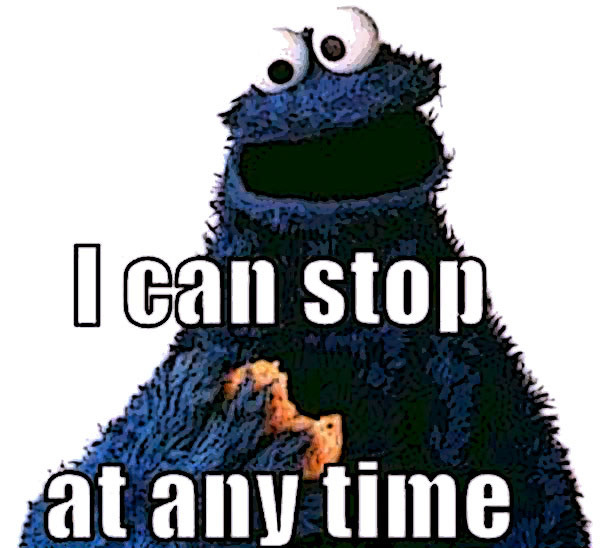Get ahead of the game when planning your New Year's resolutions
Permission to feel: Cognitive Dissonance.
‘I’ll start the diet on Monday’.
‘No one will notice if I slip in a quick drink before going home.’
‘I know smoking kills, but I’d be so miserable without it, I couldn’t get through the day.’
Any of them sound familiar? No, you haven’t slipped into the third week in January, when New Year’s resolutions seem to go belly up, but call this a little pre-emptive insight to help you get ahead of the game for that time of year..
Ooo, on the idea of resolutions, here’s a little poem
Resolution resignation
What if I don’t want to be the best that I can be?
What if, on reflection, I prefer the mediocre me?
What if I decide to not be so reverential
To my hidden and undoubtedly untapped ‘true potential’?
What if I’m not so bothered about what’s my real life purpose?
What if I’d rather scroll and scroll than live a life of service?
What if the glow of resolutions has worn so very thin?
What if I don’t finish this, ‘cos I no longer finish what I…
Ahem, anyway, back to the idea of giving up on giving up.
Do you still do something that you know you want to change, that you know you should change, but that remains, unchanged?
You may think it’s just poor willpower, but it goes much deeper than that.
What keeps us stuck in old patterns of behaviour?
Well, like my little old poem illustrates, once the shine of the new gym gear has worn off, or the conviction that we really DO want to give up the booze or fags has tarnished, we start to hanker and crave, but we create a convenient new belief for ourselves to alleviate the inner tug of war we have going on.
AKA ‘It’s not that big a deal’.
Yeah, right.
It is human nature to behave in a way which is consistent with our beliefs, but when our actions don’t fit in with our beliefs this tension is uncomfortable, so we soothe ourselves with a new belief that resolves the tension.
It’s a fascinating area of social psychology, because it makes us do things that, to an outsider, quite frankly, seems bonkers.
Psychologist Leon Festinger researched this area. He did an experiment where participants were paid either $1 or $20 (in 1958 - so nowadays that would be like $10 or $200) to perform boring, menial tasks. They were then asked to lie to the next participant that the tasks were actually really enjoyable. When they were then asked to honestly state how enjoyable the tasks had been, those who were paid $1 rated them much more positively than those paid $20. There was greater dissonance for those paid $1, so in order to soothe that tension they positively changed their evaluation of the tasks.
Basically, those with $20 in their back pocket did not have to change their belief about the tasks, because the money gave them an alternative reason as to why they lied, ‘Well, I was paid to say that so…’.
Whereas those who received a paltry amount didn’t have the draw of a good enough alternative belief, so had a stronger inner need to justify their behaviour, which resulted in them lying to themselves in order to reconcile that dissonant feeling so that their action aligned with their beliefs.
Powerful stuff.
When we feel this cognitive dissonance we have become aware of a conflict between our attitudes and beliefs and our actions.
Can you think of an instance in your own life when this has happened? I’d hazard a guess that somehow you felt that tension physically. It may be a sick feeling in the pit of your stomach or a tight neck or a tap-tap tapping foot when you sit down.
When we experience cognitive dissonance we have three strategies at our disposal to alleviate that discomfort:
Change the behaviour.
Change the belief.
Adopt a new belief to explain the cognitive dissonance.
Spoiler alert 1 - we are creatures of ‘path of least resistance’, so we are likely to go to ‘adopt a new belief’ more easily than committing to changing the behaviour or the belief.
Spoiler alert 2 - 98% of our behaviour is lead by unconscious, effortless automatic brain processing driven by our primal brain’s need for survival. If the behaviour change doesn’t feel safe to our primal brain we will be fighting agains this powerhouse (spoiler alert 2a - we will lose).
Spoiler alert 3 - to change our behaviour, we have to get conscious about our unconscious processes driving that behaviour.
Trying to change the behaviour without changing the beliefs is like mowing the lawn without pulling up the roots of the weeds. (Ooh, hello dodgy analogy).
Goddamnit, how did nature create such a well-oiled hard-to-hack system?!
And what are our unconscious beliefs born from? Our past experiences. In order for us to change our behaviours we have to not only change the behaviours but become aware of the unconscious beliefs that drive them and change those so that our fast-acting survival system can come down from its protective high alert state.
What questions do you have about this? What was helpful to know and what are you still wanting to figure out? Let me know!
That’s it for now,
‘Til next time!
Jacky x





